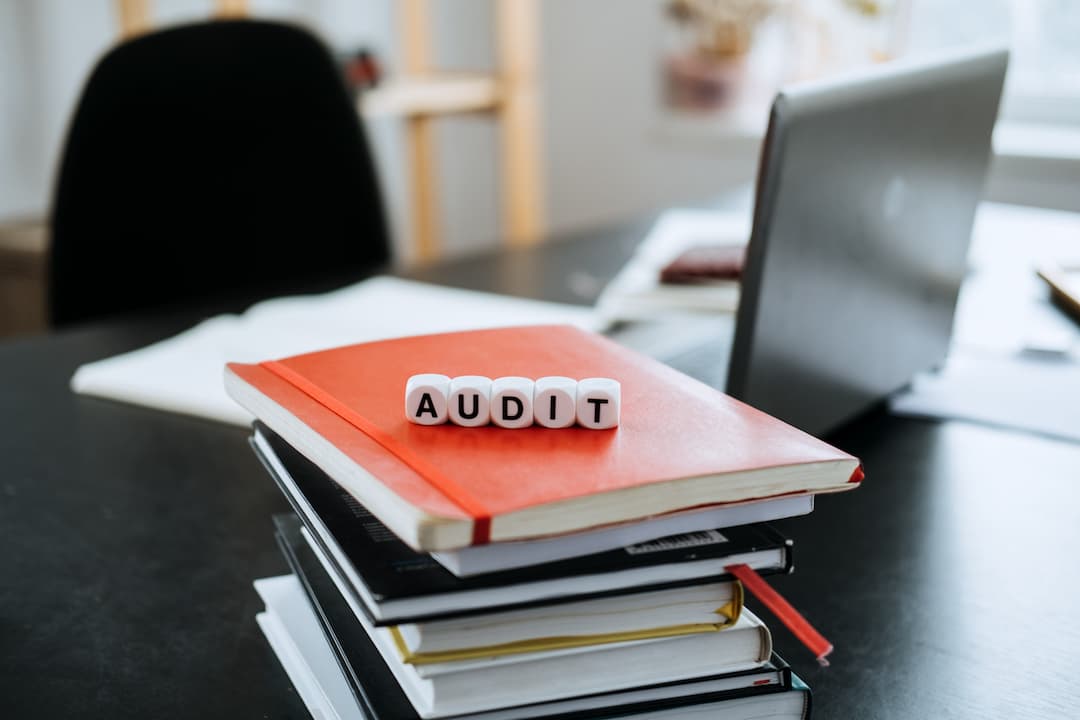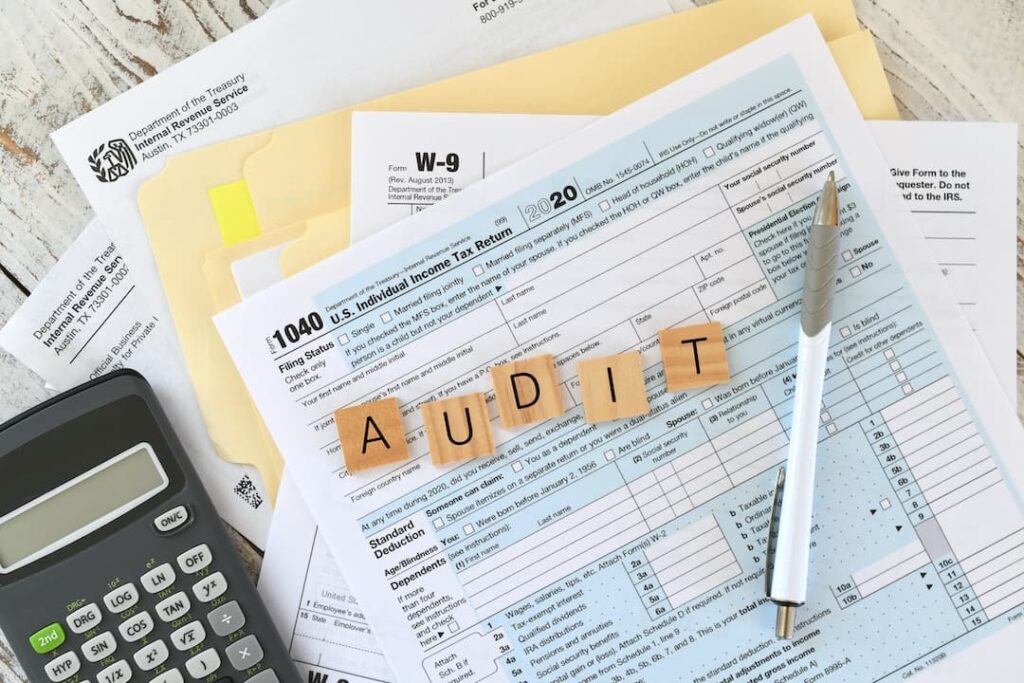
Introduction
When it comes to taxes, receiving an IRS audit letter can be a cause for concern and stress. An IRS audit involves a thorough review of your tax return and financial records to ensure everything is in order. Fortunately, there are strategies and precautions you can take to effectively handle an audit and minimize issues. In this article, we will provide practical tips on how to handle an IRS audit and when it’s the right time to seek expert help.

How to Handle an IRS Audit and When to Seek Expert Help?
Facing an IRS audit may seem daunting, but with proper preparation and the right knowledge, you can navigate it smoothly. Here are the key steps to follow in order to confidently handle an IRS audit:
1. Stay Calm and Review the Audit Letter Carefully
First and foremost, it’s important to stay calm and not panic when you receive an IRS audit letter. Read the letter carefully and make sure you fully understand what is being requested and the time period the audit covers. This will help you get a clear idea of what is expected from you and how to proceed.
2. Organize Your Records and Documents
Organizing your relevant financial records and documents before meeting with the IRS auditor is crucial. This includes past tax returns, receipts, invoices, and any other documentation related to your income and expenses. Having these documents organized in a clear and orderly manner will help you present your case more effectively.
3. Understand Your Rights and Responsibilities
As a taxpayer, it’s important to know your rights and responsibilities during an IRS audit. Familiarize yourself with the Taxpayer Bill of Rights and make sure you understand how the audit process works. This will allow you to protect your interests and cooperate appropriately with the IRS auditor.
4. Prepare for the Meeting with the Auditor
Prior to the meeting with the IRS auditor, take the necessary time to prepare yourself. Review your records and documents, and make sure you have clear answers supported by evidence for any questions they may ask. If there are complex aspects in your tax return, consider seeking professional advice to ensure you are adequately prepared.
5. Be Cooperative and Honest During the Audit
During the audit, it is essential to be cooperative and respond to all auditor’s questions honestly and accurately. If you are unsure about something, it is better to admit your uncertainty rather than provide incorrect information. If the auditor requests additional documentation or asks questions that you can’t answer immediately, reach out to a tax professional for advice before providing a misleading response.
6. Know Your Appeal Options
If you disagree with the results of the IRS audit, you have the right to appeal the decision. It’s important to know your appeal options and the corresponding deadlines. Consult with a tax expert or an attorney specializing in tax matters to assess whether you have solid grounds for filing an appeal and to guide you through the process.
7. When to Seek Expert Help
If you feel overwhelmed or uncertain about how to handle an IRS audit, it is advisable to seek help from tax experts. Here are some situations where seeking professional assistance can be beneficial:
The Complexity of the Audit
If your IRS audit involves complex issues related to investments, intricate business transactions, or sophisticated tax structures, it is recommended to seek help from a tax expert. These professionals have the knowledge and experience to address complicated situations and ensure your rights and interests are protected.
Lack of Time and Resources
In some cases, you may find yourself without the time or resources to adequately prepare for an IRS audit. If you’re facing tight deadlines or if you don’t have the ability to organize and review your financial records thoroughly, a tax expert can help save you time and ensure you are properly prepared.
Risk of Penalties and Sanctions
If you believe there is a substantial risk of penalties or sanctions due to potential errors or non-compliance in your tax return, seeking help from tax experts is a wise decision. These professionals can assess your situation and assist you in minimizing any negative repercussions in terms of fines or financial penalties.
Comfort and Peace of Mind
Even if your IRS audit doesn’t seem particularly complex or risky, hiring a tax expert can provide you with comfort and peace of mind. Knowing that you have someone with specialized knowledge by your side can reduce stress and ensure that everything is handled appropriately.
Frequently Asked Questions (FAQs)
What is an IRS audit?
An IRS audit is a process in which the Internal Revenue Service (IRS) closely examines the information on your tax return and financial records to ensure accuracy and compliance with tax laws.
Why is the IRS auditing me?
The IRS may select taxpayers for an audit for various reasons, such as discrepancies in reported data, unusual or random reports, or as part of a general compliance program.
What should I do if I receive an audit letter from the IRS?
If you receive an audit letter from the IRS, the first thing to do is carefully read and understand the letter. It will provide information about the type of audit, the years being audited, and the specific items or issues the IRS wants to review. Understanding the scope of the audit will help you determine the next steps to take.
What should I do before the meeting with the IRS auditor?
Before the meeting with the IRS auditor, you should prepare adequately. Review and organize your financial records, ensure you have clear and evidence-backed answers for potential questions, and consider seeking professional advice if there are complex aspects in your tax return.
What happens if I disagree with the audit results?
If you disagree with the results of the IRS audit, you have the right to file an appeal. Consult with a tax expert or an attorney specialized in tax matters to evaluate your appeal options and receive guidance on how to proceed.
When should I seek help from experts during an IRS audit?
You should consider seeking help from tax experts in situations where the audit is complex, you lack sufficient time or resources to prepare adequately, there is a risk of penalties or sanctions, or you simply desire the comfort of having specialized knowledge by your side.

You can send us a message via our website, or contact us by phone, email, or by visiting our offices:
- Address: 1016 E Osceola Parkway, Kissimmee, 34744, Florida, United States
- Phone: 407-502-2400
- E-mail: [email protected]
Remember that we are part of Freedom Group, a conglomerate of companies dedicated to providing quality services in accounting, taxes, financial consulting, insurance, real estate, and business incorporation, among others.
As for your finances, we can help you with everything you need.
** Disclaimer: This post is for informational purposes only and should not be considered as professional tax advice. Consult with a qualified tax professional for personalized guidance.



















